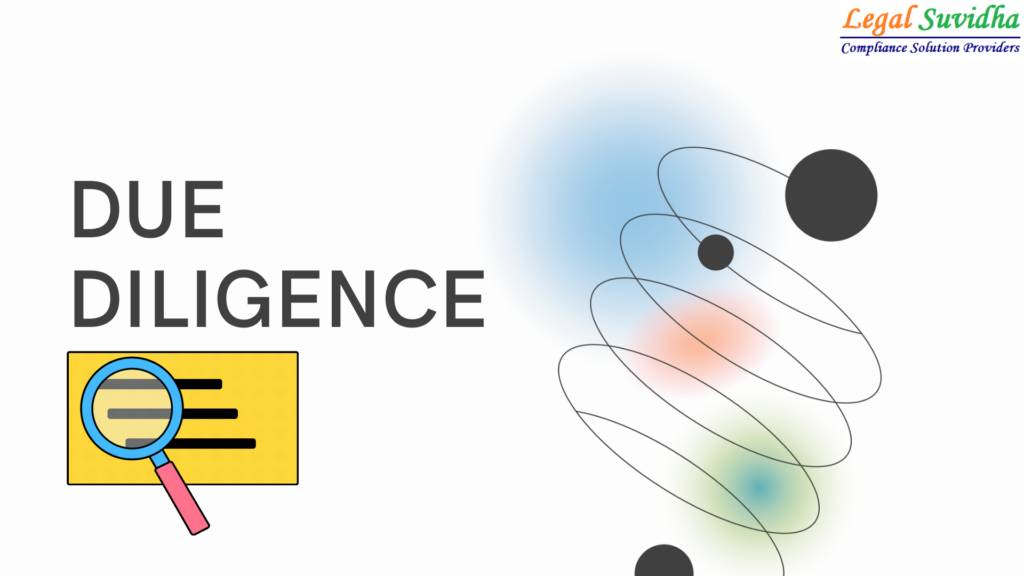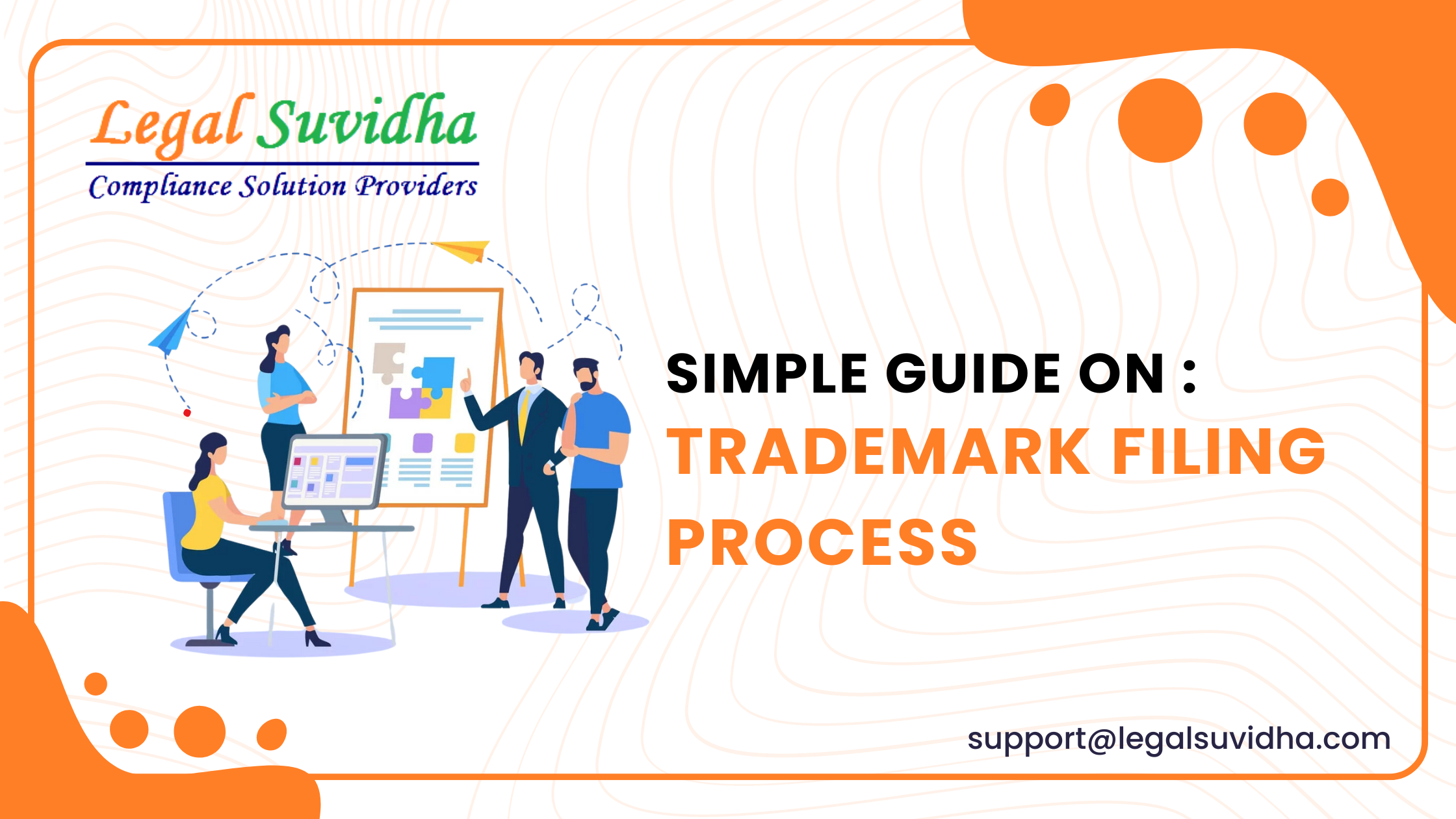KNOW EVERYTHING ABOUT DUE DILIGENCE
INTRODUCTION
Due Diligence means process of investigation, verification and examination of various Legal as well as financial database a Company holds which includes a vast check on its history with regard to financial performance, its assets and obligations and the reputation it holds in the market.
Before making any investment the potential buyer needs to step into the shoes of the potential seller and make a thorough check on the key determinants that would be able to drive the Company.
For the sake of determining various benefits that could be derived through the deal and investigating into the shortcomings, a panel of due diligence experts needs to be engaged for carrying out various financial and legal checks on the Target Company.
IMPORTANCE OF DUE DILIGENCE:
Due diligence perfomed by an legal expert saves costs to the buyer and enriches them with potential information on the threats and risks involved and well as conducting SWOT analysis that would drive the investment and buy-in.
- Assessing and quantifying the main legal risks
- Provide solution to the risk’s so assessed and devising measures to mitigate it through various measures.
- Get to the bottom of all the legal contracts ever entered into and decoding it to ascertain any liabilities arising out of the same.
- For a Company that is listed, it should comply with SEBI Regulations.
- Compliance related to the industry specific laws such as Aviation laws, Food Laws, Banking Regulations and so on
Important key aspects to be considered:
- Organizational Chart and management philosophy engaged in running the business.
- Corporate by laws, which could be also held up in the Articles of Association of the Company, which again is a key ingredient in running and optimizing the Company and has the set of rules which needs to be adhered to in day to day operations of the Company.
- The stakeholders, not to mention are the key people who reflect the overall growth and performance of the Company.
- A key study of stakeholders mainly the Angel and institutional investors would speak a lot about the Company’s efficiency and the way it delivers to multiply their investments.
- Minutes are the secret treasure to any Company’s past activity. They reflect the decisions taken by the Company in the past and are the key records for any existing value plan and activity.
- The minutes include the resolutions passed by the Company in its Board meetings, Shareholders meeting and the decisions made therein.
- Therefore, a thorough reading and understanding of the minutes is needed to synchronize the acts done by the Company in the past and its results.
- Conduct discussions with various committees formed in the Company, may it be Risk Management committee, Audit committee, Independent Director’s committee and so on.
- It also gives a true and clear picture about the trends being followed in a particular organization and the basic structure that is relied upon for conducting various compliances and management tasks. Contractual Obligations.
Due diligence is divided into the following categories:
- Financial Due Diligence;
- Tax Due Diligence;
- Operational Due Diligence
A. Financial Due Diligence (FDD)
Financial due diligence is done for the review period, which is decided on a case-to-case basis. Generally, review period ranges from a time of 3 to 5 years. Before starting the FDD following are the documents that should be ready for the review period:
- Audited Financial statements;
- Unaudited Financial statements;
- Cash Flow statements;
- Income-tax returns
Generally, the process starts with a comprehensive analysis of the financial statements of the target. A review of the target firm’s financing and capital structure is the foremost required.
Further, analysis should include details of short-term and long-term borrowings, the debt-equity ratios , interest and fixed charges coverage ratios of the Company, the nature and extent of assets kept as collateral against borrowings and the extent of dependability of the Company’s operations on those collaterals.
Financial due diligence also involves analysis of the cash flow statement.
Examination of the quality of company’s relationships with its lenders and an ultimate opinion concerning the reliability and credibility of its financial statements.
Another important point is to verify whether the receivables are outstanding beyond a normal turnaround time and the extent of fruitful efforts made by the Company to realise its long dues;
Analyze the past sales trend of the Target and compare the credibility of the assumptions in the projections;
Analyze the loan agreements of the Target to evaluate whether any prior approval is required before such transaction;
Whether the Budget meets the actual data or there are variances.
Whether any of the past acts of the Company was done ultra-vires the powers granted to it vide the AoA and MoA and possible implications of such acts after the acquisition is materialised.
B. Tax Due Diligence
I. Direct Tax
A typical direct tax due diligence entails review of relevant documents from which the tax information can be sourced. The source to obtain the relevant tax information are as follows:
a) The financial statements of Target
b) Tax records of Target The scope of the tax information is as under: Review of the contingent liability; Provision for outstanding demands recognised as present obligations Review of tax provisions and tax paid against regular self-assessment in the balance sheet;
Analysis of the effective tax rate; Review of MAT paid and MAT credit; Analysis of accumulated deferred tax assets and liabilities
II. Indirect tax
The scope of Due diligence for indirect tax is as under:
Relevant indirect tax information is normally available in the profit and loss account related schedules, notes attached to the financial statements, Auditors Report and Directors Report.
The Notes to accounts disclose the contingent liability in respect of disputes against the company. The Auditor’s report discloses the details of outstanding indirect tax as well as disputed dues.
Sometimes, the Director’s report includes foreign exchange earnings and outgo position and also discusses the status of ongoing tax litigation.
Examining the contingent liability schedule and indirect tax provision created in books of accounts enables a reviewer to get an insight into indirect tax disputes between the company and the tax authorities.
As the next step, ewer may ask the necessary questions/review relevant records to examine details of disputes between the target and the tax authorities and would then highlight the risk exposure.
Generally, an entity liable to pay any tax has to obtain appropriate registration, pay appropriate taxes and file periodic returns under specific indirect tax legislation.
The detailed tax records maintained by the company provide information regarding the indirect tax implications on the business carried out/services provided by the target.









